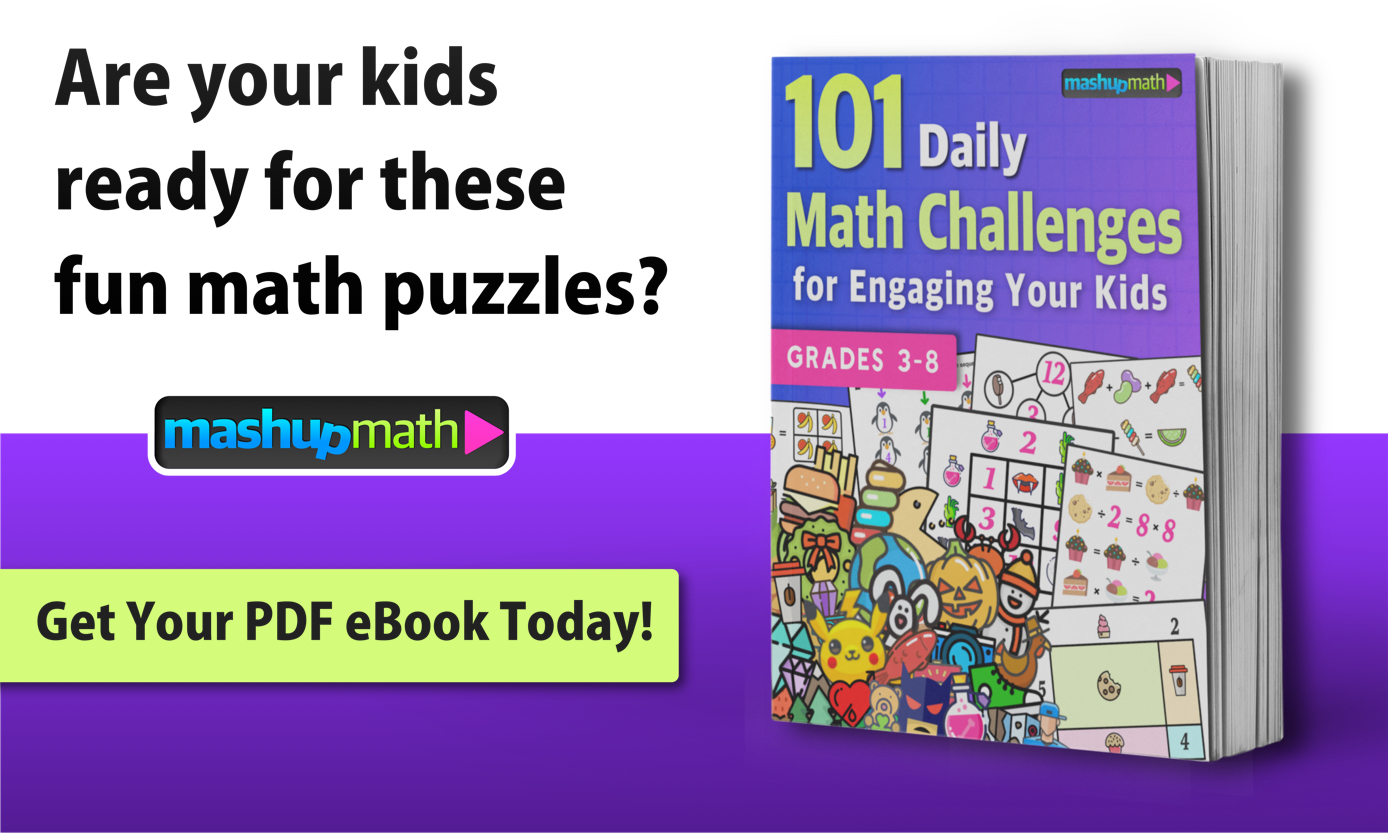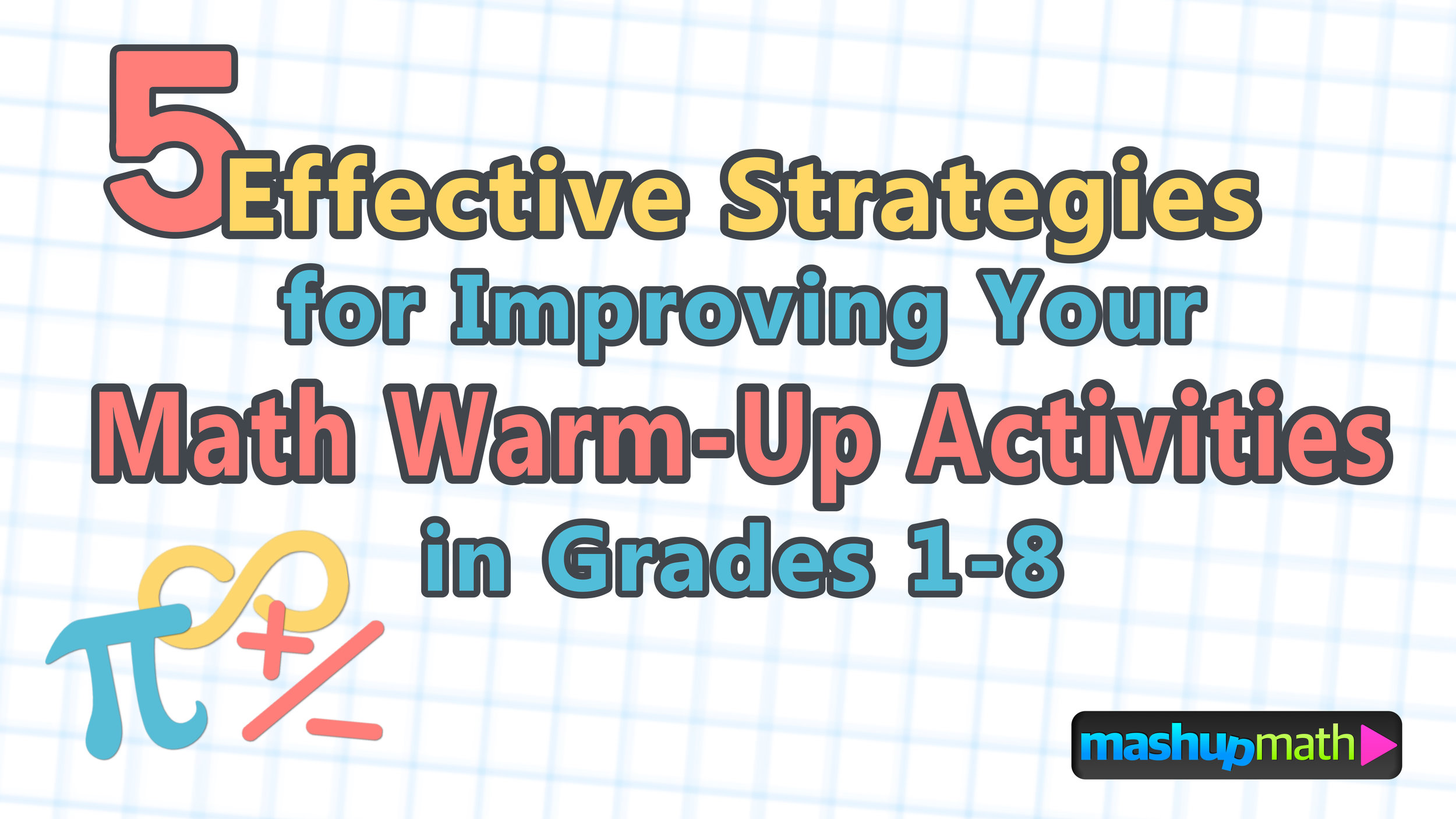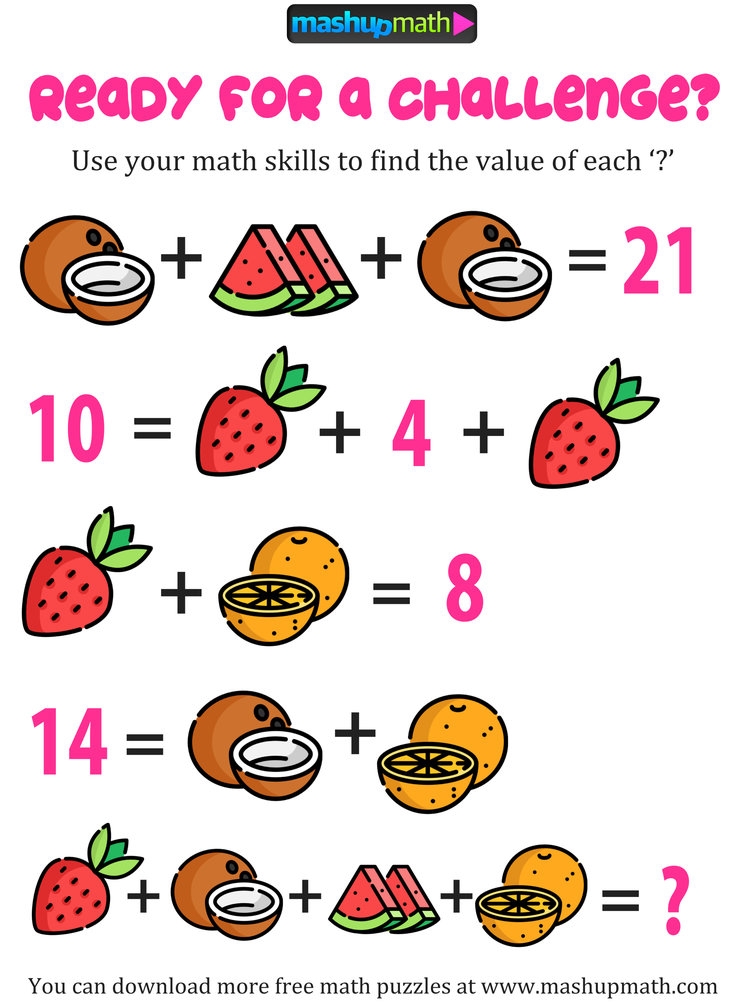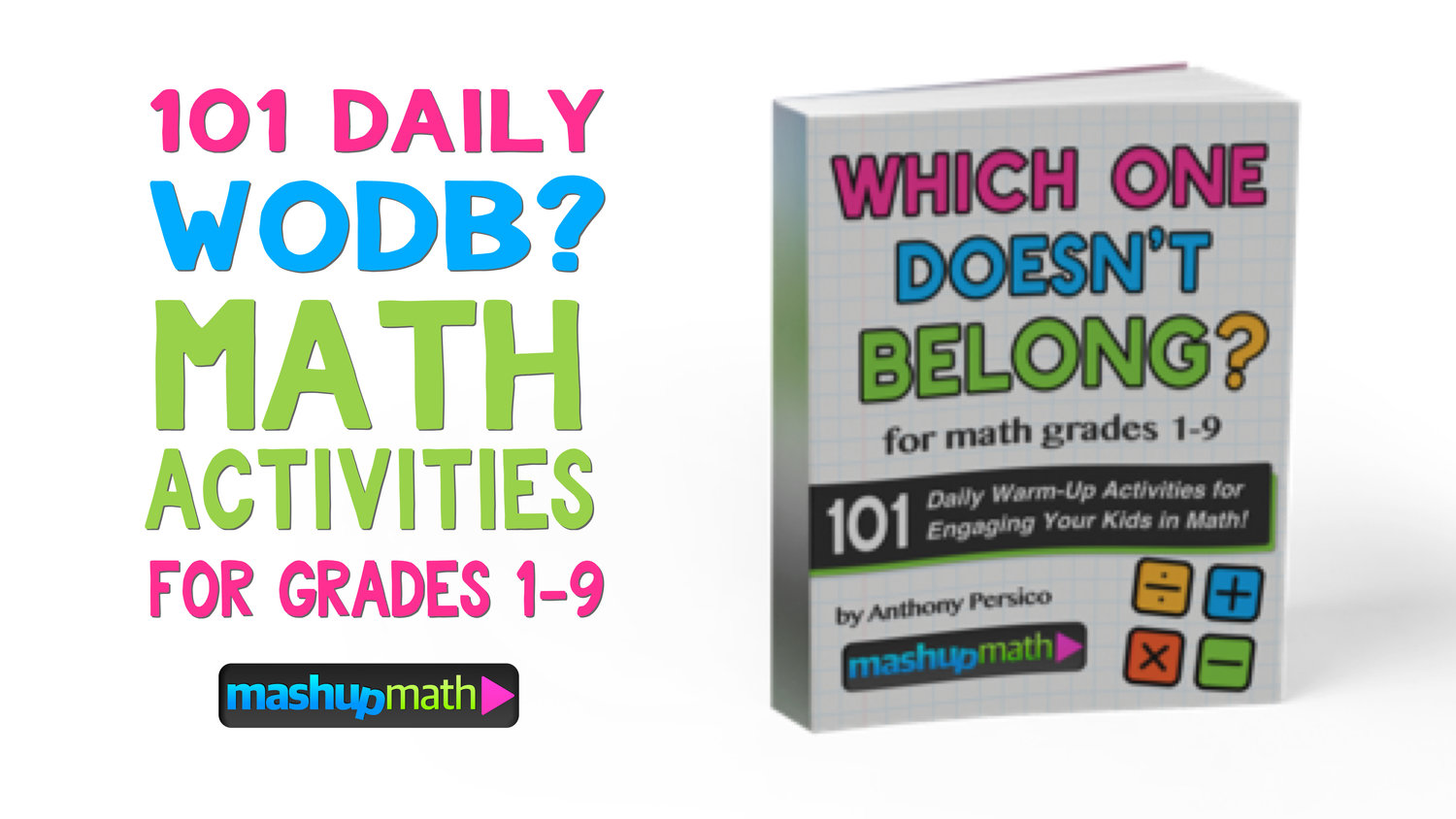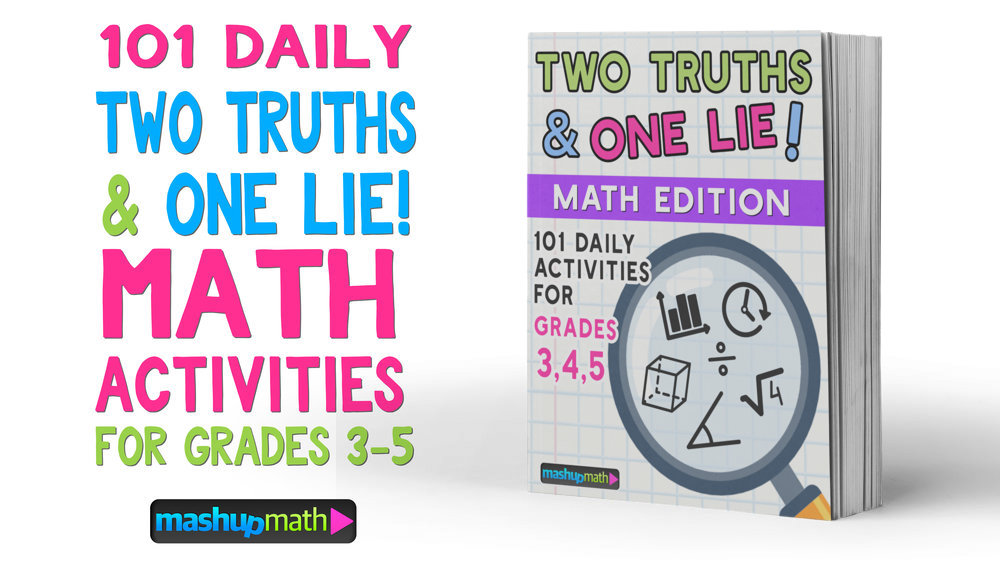Looking for Effective and Easy End of Year Math Activities?
The final weeks of the school year have arrived and keeping your students engaged in learning math is no easy task.
You can mix up your instruction and keep your students interested in learning math by incorporating a few awesome end of year math activities and projects into your upcoming lesson plans.
The following end of year math activity ideas are perfect for implementing during the final weeks of the school year, an extremely hectic time when sticking to your usual routine is nearly impossible.
And each end of year math activity is easy to modify to best meet the needs of your students! The activities can be modified for students at the elementary, middle, and high school levels.
So, which end of year math activity will you share with your students this spring?
(Tags: end of year math projects, end of year math activities, 1st grade, 2nd grade, 3rd grade, 4th grade, 5th grade, 6th grade, 7th grade, 8th grade, grade 1, grade 2, grade 3, grade 4, grade 5, grade 6, grade 7, grade 8)
1.) Math Book Report
Description: Standard math curriculums hardly ever make time for students to actually read about math. The end of the school year is the perfect time to give your students an opportunity to choose a book about math and create and share a book report.
One option is to have your students research a famous mathematician. I also like having students choose a math-related fiction book, like any of the ones included on this list of 13 STEM Fiction Books Your Kids Will Love.
Image Source: Mashup Math MJ.
There are tons of excellent math-fiction books available for students of all grade levels.
2.) Tessellation Project
by GeometryCoach.com
Description: This project blends elements of the history of math, geometry, and art/design into an engaging learning experience where students use mathematical thinking to manipulate shapes to create “Escher tiles” and use them to create geometric works of art!
Image Source: Mashup Math MJ
3.) Barbie Bungee
Description: The Barbie Bungee data collection activity may be the most underrated math activity ever. Ideal for pre-algebra students, this activity gives students a fun and engaging opportunity to make predictions, collect real-world data, and then analyze the results within the context of their initial hypothesis. This activity is even endorsed by the National Council of Teachers of Mathematics (NCTM), who share free lesson resources for any teacher interested in trying the Barbie Bungee in their classroom.
Image Source: Mashup Math MJ
4.) Escape Room!
Description: Classroom ‘escape room’ lessons are growing in popularity. Why? Because classroom escape rooms boost student excitement and engagement while helping your kids apply and improve their mathematical problem-solving skills.
If you are new to the idea of classroom escape rooms (sometimes called breakout challenges), check out this blog post So You Want to Build a Classroom Escape Room… by We Are Teachers.
Image Source: Mashup Math MJ
5.) The Parachute Project
by Amy at www.allabout3rdgrade.com
Description: Students use their math skills to design and build a parachute that will stay in the air the longest. This STEM activity is a great opportunity for math and science teachers to collaborate—and it’s a great activity to do outdoors!
Image Source: Mashup Math FP
Are YOU looking for some super fun daily math puzzles for your students in grades 3-8? Our best-selling 101 Daily Math Challenges workbook is now available as a PDF download!
6.) Plan and Budget Your Dream Vacation
by Jennifer at www.loveteachingkids.com
Description: Students are given a budget and have to work groups to plan all aspects of their determined “dream vacation.” This end of year math activity allows students to learn more about budgeting, personal finance, and real-world math applications. Aside from vacation planning, this activity can be modified to budgeting things like personal finances, events, starting a business, etc.
Image Source: Mashup Math FP
7.) Build Fraction Kits
by Anthony at www.youtube.com/mashupmath
Description: Many students struggle with fractions and never really grasp the important concepts. Whether you want to help fortify your students’ understanding of fractions before the school year ends or you want to expose them to fractions a little early, this simple hands-on activity is highly effective and is definitely worth giving a shot!
Click here to get your Free Fraction Kit Lesson Guide!
Image Source: Mashup Math ST
8.) Area and Perimeter Architecture
Description: Students explore and apply the concepts of area and perimeter by building a city using LEGO bricks! This hands-on activity is another great example of how math teachers can use LEGO to teach challenging concepts.
If you don’t have access to Lego bricks, check out this free STEM: Area and Perimeter City activity guide by teachbesideme.com.
Image Source: Mashup Math MJ
“I always look forward to getting my Mashup Math newsletter email every week. I love the free activities!”
-Christina R., 5th Grade Math Teacher, Dallas, TX
Do YOU want free math resources, lesson activities, and puzzles and games for grades 1-8 in your inbox every week? Join our mailing list and start getting tons of free stuff (including a free PDF workbook)!
9.) Year End Reflection Activity
Description: In this activity, students take time to reflect on what they learned in math this past school year, what challenges they overcome, and how they’ve grown as problem solvers. This activity is perfect for teachers who have students complete a math portfolio over the course of the school year.
Image Source: Mashup Math MJ
10.) Math Puzzles and Brain Teasers
Description: The end of the school year is a great time to let your students apply their mathematical problem-solving skills to fun puzzles, brain teasers, and challenge questions.
You can access dozens of free math puzzles for all grade levels by visiting our Free Math Puzzles page.
Image Source: Mashup Math ST
Have any more ideas for awesome end-of-year math project ideas? Share your thoughts in the comments section below!
(Never miss a Mashup Math blog--click here to get our weekly newsletter!)
By Anthony Persico
Anthony is the content crafter and head educator for YouTube's MashUp Math and an advisor to Amazon Education's 'With Math I Can' Campaign. You can often find me happily developing animated math lessons to share on my YouTube channel . Or spending way too much time at the gym or playing on my phone.









